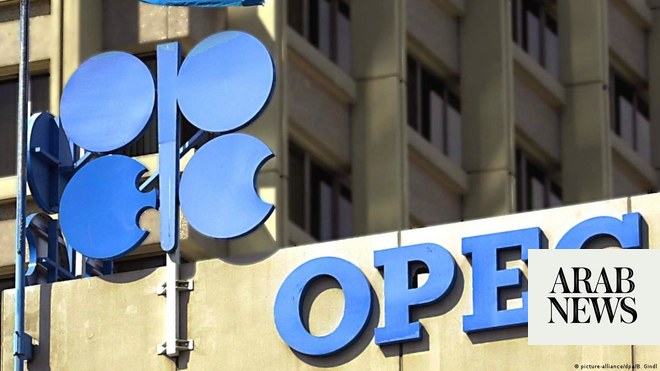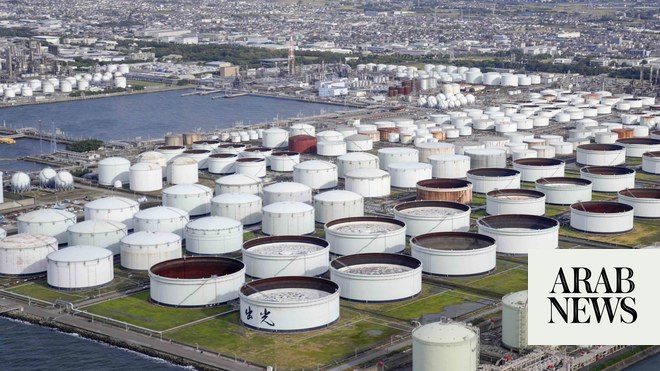
LONDON: OPEC has forecast an increase in global demand for oil this year, revising last month’s growth outlook due to better-than-expected economic data from Asia — particularly in India — and Latin America.
The bloc’s forecasts pushed oil prices to new three-and-a-half-year heights, building on last week’s rally. After prices slipped in Monday morning trade, Brent futures climbed as high as $78.20 a barrel, with WTI climbing close to around $71.13 a barrel.
Prices received a boost last week following President Donald Trump’s announcement on May 8 that the US would withdraw from the Iranian nuclear deal.
The Vienna-headquartered organization estimated on Monday that oil demand will increase by around 1.65 million barrels per day to reach 98.84 million bpd of total global oil consumption for 2018, according to its monthly report.
This estimated growth rate was revised higher by 25,000 barrels per day compared to last month’s estimates.
Opec also revised its estimate of non-Opec supply growth in 2018, increasing it by 10,000 bpd to 1.72 million bpd. This means the bloc expects the market will be in deficit by about 0.6 million bpd this year.
“The driving force behind the anticipated increase in global oil demand is likely based on expectations over stronger global economic growth,” Lukman Otunuga, research analyst at FXTM, said.
“With China’s robust economy anticipated to drive oil demand this year, oil prices could remain supported in the near term,” he said.
The latest OPEC data also suggested that the global oil glut had been significantly cut, with oil inventories in developed nations falling to 9 million barrels above the five-year average at the end of April. This compares to 340 million barrels above the average in January 2017.
This decline is largely due to an Opec-led supply cut deal put in place since the beginning of last year to help stabilize prices, coupled with growing demand in Asia.
A research note from Capital Economics on Monday said that OPEC is overestimating demand growth and underestimating non-OPEC supply growth. “We still think that OPEC’s forecast that the market will be in a large deficit this year is too ambitious,” the note said.
Otunuga told Arab News that the price of oil has further room to rise this week. “Oil has scope to appreciate this week on the back of OPEC output cuts, heightened geopolitical tensions, and optimism over stronger global oil demand.
“The Iran sanctions are likely to fuel speculation of tighter global supply, while heightened geopolitical tensions in the Middle East may fan fears of potential supply disruptions,” he said.
Capital Economics analysts said OPEC is well-positioned to offset any fall in output from Iran caused by the re-imposition of sanctions on the country. “We still expect the impact on Iran’s oil output to be fairly small, given that Tehran and the EU have decided to stay in the deal,” analysts said.
Otunuga noted that increasing US shale production could dampen any long-term anticipated price hikes.
“Although oil could venture higher in the near term, robust production from US shale remains a threat to higher oil prices,” he said.
According to a Baker Hughes report last Friday, the US oil rig count rose by 10 last year. The US Energy Information Administration (EIA) is expected to release its estimates for US shale oil production in June late on Monday.
“It should have risen considerably further, driven primarily by the Permian Basin shale play,” said a note compiled by Commerzbank analysts.
“That said, there are problems with transporting the oil at present, as the high $12 per barrel discount on WTI Midland as compared with WTI Cushing illustrates.”
The OPEC report was published the same day as the Russian oil company Rosneft posted a seven-fold increase in net profits for the first quarter of the year compared to the same time period last year, reaching 81 billion rubles ($1.3 billion).
The company’s revenues increased “on the back of higher crude oil prices and optimization in sales channels despite the remaining constraints in production within the OPEC+ Agreement,” it said on a statement issued on Monday.












